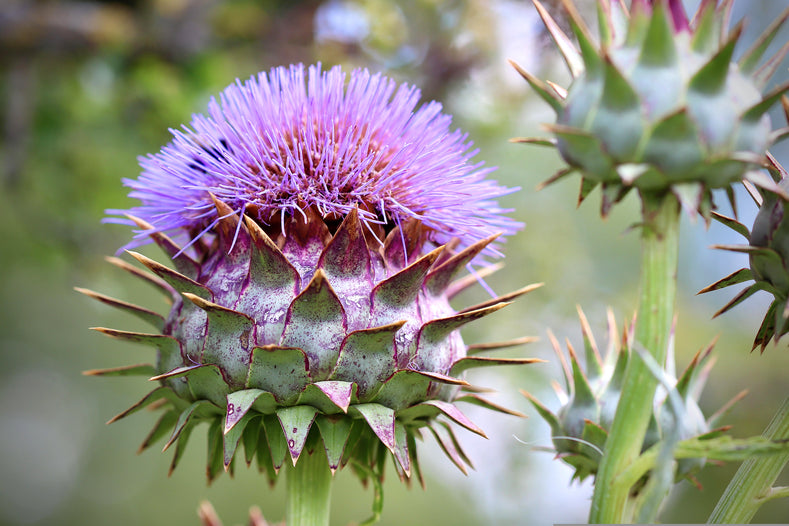Planting Artichoke Thistle, also known as Cardoon (Cynara cardunculus), brings a bold, architectural element to your garden with its striking, silvery-blue foliage and large thistle-like flowers. Here's a comprehensive guide to planting and caring for this unique and ornamental perennial:
Choosing the Right Time and Location
- Best Time to Plant: Plant Artichoke Thistle in early spring after the risk of frost has passed. In warmer climates, fall planting is also suitable.
- Location: Select a sunny location that receives at least 6 hours of direct sunlight daily. Artichoke Thistle thrives in full sun.
Soil Preparation
- Soil Requirements: This plant prefers well-draining, fertile soil. It is adaptable to various soil types but performs best in soil rich in organic matter.
- Improving Soil: Amend the planting area with compost or well-rotted manure to enrich the soil. If you have heavy clay soil, incorporate some sand or gravel to improve drainage.
Planting Artichoke Thistle
- Spacing: Space plants or seeds about 24-36 inches apart to give them room to grow. Artichoke Thistle can reach up to 4-6 feet in height and spread 2-4 feet wide.
- Planting Depth: Sow seeds shallowly, about ¼ inch deep.
Watering and Feeding
- Watering: Water thoroughly after planting. Keep the soil consistently moist but not waterlogged, especially during dry periods.
- Fertilizing: Apply a balanced, slow-release fertilizer at the beginning of the growing season to promote healthy growth. A mid-season feeding can be beneficial, especially in poorer soils.
Ongoing Care
- Mulching: Apply a layer of organic mulch around the base of the plant to retain soil moisture, suppress weeds, and regulate soil temperature.
- Support: Tall varieties may require staking to prevent them from flopping over, especially in windy locations or when the large flower heads develop.
- Pruning: Remove spent flower heads to prevent the plant from self-seeding excessively, as it can become invasive in some areas.
Pests and Diseases
- Common Issues: Artichoke Thistle is relatively pest and disease-free but watch for slugs and snails, especially on younger plants.
Winter Care
- In Cold Climates: Artichoke Thistle is hardy in USDA zones 6-10. In colder zones, protect the crown of the plant with a thick layer of mulch to overwinter.
With its dramatic foliage and striking flowers, Artichoke Thistle makes a stunning addition to ornamental beds, borders, and large containers. Its unique appearance and low-maintenance nature make it a rewarding choice for gardeners looking to add a touch of drama to their outdoor spaces.

